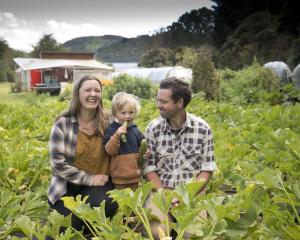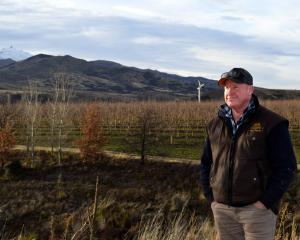
Waitaki Orchards general manager Ellen Sparks said four people from Vanuatu were due to arrive to work on the orchard for seven months, under the Recognised Seasonal Employer scheme.
The government had made some changes for the upcoming 2024-25 season.
"They are sensible changes which make it easier to manage staff while still being fair to the staff," Mrs Sparks said.
The pandemic had created issues employing staff from the Pacific Islands and it was "nice to be back in the normal cycle".
Those issues included a lack of staff, fewer tourists visiting the orchard’s roadside shop and export markets closing due to challenges transporting fruit.
Navigating the issues had been a "battle" but the situation had improved.
"I feel we are on the other side of it," she said.
Waitaki Orchards had not exported fruit for the past three seasons but was considering resuming exports this season.
More fruit was being bought from the roadside shop and there were a lot more backpackers seeking seasonal work, she said.
An advertisement seeking staff to pick, thin and prune would usually get about 10 applications. Now, 100 people would apply within 24 hours of it being advertised.
"It is just insane," she said.
The 34ha orchard operation borders State Highway 83, about 5km southeast of Kurow.
Fruit trees cover 20ha, a mix of mostly apricots and some plums, nectarines, peaches and cherries.
Cold weather had set the fruit and it looked like it was shaping up to be a good season.
"There is a lot of blossom out there, which gives you a bit of hope for the coming season," she said.
Immigration Minister Erica Stanford said the cap on the number of RSE workers had increased by 1250 to 20,750 for the 2024-25 season.
Other changes included employers being required to pay workers an average of 30 hours a week over four weeks.
"The pause on accommodation cost increases will be lifted and the requirement to pay RSE workers 10% above the minimum wage will only apply to experienced workers, recognising their productivity."
Further changes to the scheme included improved flexibility for RSE workers to move between employers and regions, workers’ visas being multi-entry during a season, RSE workers being able to undertake training and skills development not directly related to their role and RSE workers no longer needing to be screened for HIV, aligning them with other temporary visa applicant requirements.
Most of those changes would be in place by that month, she said.
"These changes are just the start. The next phase of our work programme will consider substantive, longer-term options to further improve the wider RSE system and worker welfare settings," Ms Stanford said.
Outgoing Horticulture New Zealand chief executive Nadine Tunley said the scheme changes would go a long way to supporting the horticulture industry to achieve its goal of doubling the farmgate value of horticultural production by 2035.
"The horticulture industry strongly supports hiring New Zealanders first. However, to reach our potential, we must attract and retain many more motivated and skilled people to work in horticulture, from both New Zealand as well as overseas, especially during seasonal harvest peaks. The RSE scheme will continue to play an important role in this."
Allowing employers to average out RSE workers’ minimum 30 hours per week over four weeks would provide certainty for workers and better reflect the weather-dependent nature of the industry.
Adjusting the application of the 10% above the minimum wage requirement so it only applied to more experienced RSE workers also made sense, Ms Tunley said.
"We believe in the same pay for the same jobs in horticulture. However, in addition to minimum wage, pay rates for many visa categories have been moving towards the median wage, even if the jobs are not median skills. This has created a pay disparity between New Zealand workers and migrant workers."
The horticulture industry had advocated for the pause on accommodation cost increases to be lifted since being introduced in 2019.
"The changes show this government understands the challenges growers in the RSE scheme have been facing and these adjustments will ease the pressure," Ms Tunley said.














